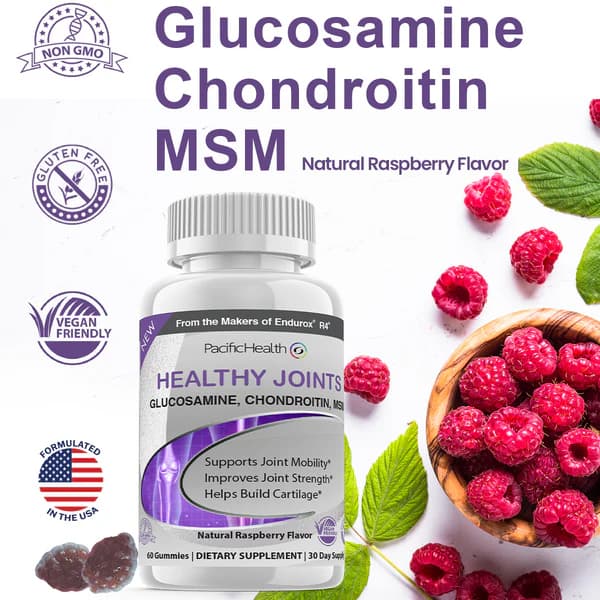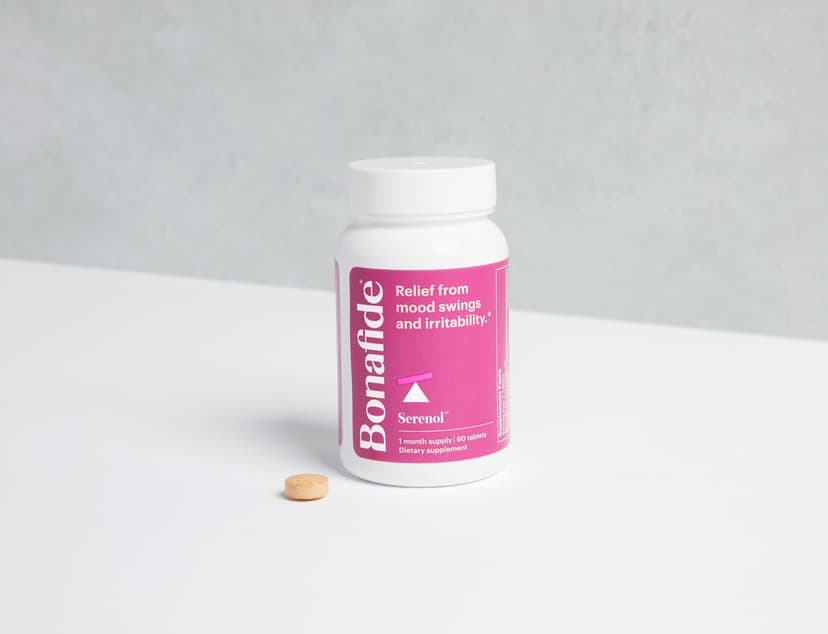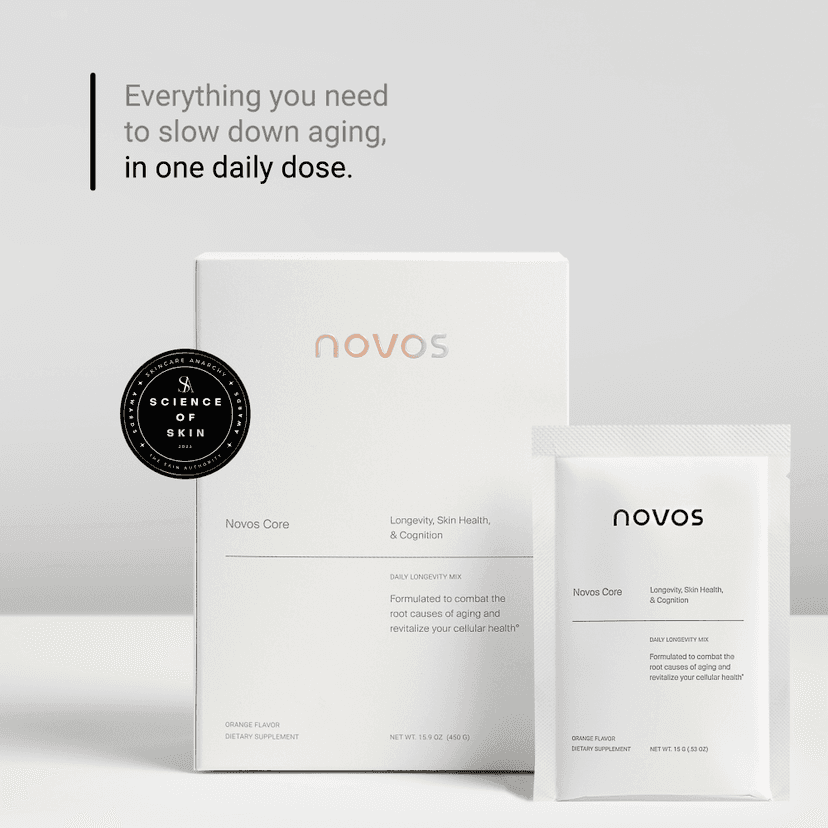Phosphatidylserine (PS) is a vital compound that plays an essential role in brain health and cognitive function. Found in cell membranes, this nutrient is crucial for maintaining healthy brain cells and supporting memory and learning. As we age, our levels of phosphatidylserine can decline, which may contribute to memory issues and cognitive decline. This article explores the benefits of phosphatidylserine, especially for memory enhancement, cognitive function, and its potential use in treating Alzheimer's disease.
Key Takeaways
- Phosphatidylserine is important for brain health and helps support memory and learning.
- It may improve age-related memory decline and cognitive performance in older adults.
- Clinical studies suggest that phosphatidylserine can aid in managing symptoms of Alzheimer's disease.
- Athletes may benefit from phosphatidylserine for better performance and recovery after exercise.
- Always consult a healthcare provider before starting any new supplement regimen.
Understanding Phosphatidylserine and Its Role in the Brain
What is Phosphatidylserine?
Phosphatidylserine is a vital chemical found in the body, especially in the brain. It helps in many important functions, including cell structure and communication. This compound is crucial for maintaining healthy brain activity. While the body can produce some phosphatidylserine, it is also obtained from food sources like soy and cabbage.
How Phosphatidylserine Supports Brain Health
Phosphatidylserine plays a key role in brain health by:
- Supporting cell membranes in the brain.
- Helping with communication between brain cells.
- Reducing stress and improving mood.
Sources of Phosphatidylserine
You can find phosphatidylserine in various foods, including:
- Soy products
- White beans
- Cabbage
- Egg yolks
Additionally, it is available as a dietary supplement, often derived from soy or cabbage, rather than animal sources.
Phosphatidylserine is essential for brain function and can be beneficial for memory and cognitive health.
The Impact of Phosphatidylserine on Memory
Phosphatidylserine and Age-Related Memory Decline
Phosphatidylserine is known to help with memory issues that come with aging. Research shows that it can improve attention and memory in older adults. This is especially important as many people experience a decline in cognitive abilities as they age.
Clinical Studies on Memory Improvement
Several studies have looked at how phosphatidylserine affects memory. Here are some key findings:
| Study Type | Participants | Results |
|---|---|---|
| Double-blind study | Elderly with memory decline | Improved memory and attention after 6-12 weeks |
| Clinical trial | Alzheimer’s patients | Some symptoms improved, but effects may lessen over time |
| Open-label study | Non-demented elderly | Reported better memory abilities |
Recommended Dosages for Memory Enhancement
For those looking to improve memory, the following dosages are often recommended:
- 300 mg per day for general memory support.
- 400 mg per day for more significant memory issues.
- Consult a healthcare provider before starting any new supplement.
Phosphatidylserine is a promising option for those facing memory challenges, especially as they age. It’s important to consider individual health needs and consult with a professional.
Phosphatidylserine and Cognitive Function
Enhancing Cognitive Performance with Phosphatidylserine
Phosphatidylserine is known to play a significant role in improving cognitive performance. Research suggests that it may help enhance memory, attention, and overall brain function. Here are some key benefits:
- Supports memory retention
- Improves focus and attention
- Aids in processing speed
Phosphatidylserine and Attention Deficit Disorders
Studies have shown that phosphatidylserine can be beneficial for individuals with attention deficit disorders. It may help in:
- Reducing symptoms of ADHD
- Improving concentration in children and adults
- Enhancing overall cognitive function
Effects on Learning and Concentration
Phosphatidylserine has been linked to better learning outcomes and concentration levels. Some findings include:
- Increased retention of information
- Enhanced ability to concentrate during tasks
- Improved performance in academic settings
Phosphatidylserine is a promising compound for boosting cognitive abilities, especially in those facing challenges with memory and attention.
Phosphatidylserine in the Treatment of Alzheimer's Disease
Clinical Trials and Findings
Phosphatidylserine has been studied for its potential benefits in treating Alzheimer's disease. Several clinical trials have shown promising results:
- Improvement in cognitive function: Many studies indicate that phosphatidylserine can help improve memory and cognitive abilities in patients with Alzheimer's.
- Positive effects on mood: Some trials have reported that patients experienced better mood and reduced anxiety when taking phosphatidylserine.
- Long-term benefits: Research suggests that consistent use may lead to sustained improvements over time.
Mechanisms of Action in Alzheimer's Patients
Phosphatidylserine is believed to work in several ways to support brain health:
- Cell membrane support: It helps maintain the structure of brain cell membranes, which is crucial for proper function.
- Neurotransmitter regulation: Phosphatidylserine may enhance the levels of acetylcholine, a neurotransmitter important for memory and learning.
- Reduction of inflammation: It may help lower inflammation in the brain, which is often linked to cognitive decline.
Comparing Phosphatidylserine with Other Treatments
When looking at phosphatidylserine compared to other treatments for Alzheimer's, consider:
- Effectiveness: Some studies suggest it may be as effective as certain medications, but with fewer side effects.
- Safety: Phosphatidylserine is generally considered safe, especially when derived from plant sources.
- Cost: It may be a more affordable option compared to prescription medications.
Phosphatidylserine shows promise as a supportive treatment for Alzheimer's disease, but it should be used alongside other therapies and under medical supervision.
Potential Side Effects and Safety of Phosphatidylserine
Common Side Effects
Phosphatidylserine is generally safe for short-term use, but it can cause some side effects. Here are a few to be aware of:
- Insomnia: Some people may have trouble sleeping.
- Stomach Upset: This can include nausea or discomfort in the stomach.
- Doses Over 300 mg: Higher doses are more likely to cause these issues.
Special Precautions and Warnings
- Pregnancy and Breastfeeding: There isn't enough information to know if it's safe during pregnancy or breastfeeding, so it's best to avoid it.
- Children: It may be safe for children aged 4-18 when taken for up to 4 months.
- Animal Sources: Supplements made from animal sources may carry risks, such as the potential for disease transmission. It's safer to choose plant-based supplements.
Interactions with Other Medications
Phosphatidylserine can interact with certain medications, especially those that affect acetylcholine levels in the body. Here are some interactions to consider:
- Anticholinergic Drugs: These medications block acetylcholine, and phosphatidylserine may reduce their effectiveness.
- Drying Medications: Be cautious if you are taking medications that dry out bodily secretions.
- Consult Your Doctor: Always talk to a healthcare provider before starting any new supplement, especially if you are on medication.
In summary, while phosphatidylserine can be beneficial, it’s important to be aware of potential side effects and interactions. Always consult with a healthcare professional before starting any new supplement.
Phosphatidylserine for Athletic Performance
Benefits for Athletes
Phosphatidylserine is gaining attention among athletes for its potential benefits, including:
- Reducing exercise-induced stress: It may help lower cortisol levels, which can be elevated after intense workouts.
- Improving recovery: Athletes may experience faster recovery times after strenuous exercise.
- Enhancing focus and concentration: This compound might help athletes maintain better mental clarity during competitions.
Studies on Exercise and Recovery
Research has shown that phosphatidylserine can positively impact athletic performance. Here are some key findings:
| Study | Findings |
|---|---|
| Jager et al. (2007) | Found improvements in golf performance with phosphatidylserine supplementation. |
| Starks et al. (2008) | Reported reduced cortisol response during moderate exercise. |
| Fahey & Pearl (1998) | Noted benefits in hormonal response during overtraining. |
Optimal Dosage for Performance Enhancement
To gain the most benefits from phosphatidylserine, athletes should consider the following:
- Recommended dosage: Typical doses range from 300 mg to 800 mg per day.
- Timing: Taking it before workouts may enhance performance and recovery.
- Consistency: Regular use over time may yield better results.
Phosphatidylserine is not just for brain health; it can also be a valuable ally for athletes looking to improve their performance and recovery.
Choosing the Right Phosphatidylserine Supplement
When it comes to selecting a phosphatidylserine supplement, there are several important factors to consider. Choosing the right supplement can significantly impact its effectiveness. Here are some key points to keep in mind:
Types of Phosphatidylserine Supplements
- Soy-derived: Most common and widely available.
- Cabbage-derived: A good option for vegetarians and vegans.
- Bovine-derived: Less common now, but was traditionally used.
Quality and Sourcing Considerations
- Look for products that are third-party tested for purity and potency.
- Check for certifications like GMP (Good Manufacturing Practices).
- Ensure the source of phosphatidylserine is clearly stated on the label.
How to Read Supplement Labels
- Serving Size: Understand how much phosphatidylserine is in each serving.
- Other Ingredients: Be aware of any fillers or additives that may be included.
- Expiration Date: Always check to ensure the product is within its shelf life.
Choosing a high-quality phosphatidylserine supplement can help you achieve better cognitive health and memory support.
Conclusion
In summary, phosphatidylserine is a vital compound that plays a key role in brain health and memory. Research shows that it can help improve memory and thinking skills, especially in older adults. While it is found in some foods, many people choose to take it as a supplement. This compound may also support those with Alzheimer's disease and help with stress management. Although more studies are needed to fully understand its effects, phosphatidylserine shows promise as a helpful aid for memory and cognitive function. As always, it’s important to talk to a healthcare provider before starting any new supplement.
Frequently Asked Questions
What is phosphatidylserine and where can I find it?
Phosphatidylserine is a substance that is important for brain health. It is found in small amounts in many foods, especially in soy and cabbage. It helps to support the structure of brain cells.
How does phosphatidylserine help with memory?
Phosphatidylserine is believed to help improve memory by supporting brain function. Some studies show that it may help people who have memory problems due to aging.
Are there any side effects of taking phosphatidylserine?
Some people may experience side effects like trouble sleeping or upset stomach, especially if they take high doses. It's best to talk to a doctor before starting any new supplement.
Can phosphatidylserine help with conditions like ADHD or Alzheimer's?
Yes, phosphatidylserine may help with attention problems in ADHD and some symptoms of Alzheimer's disease. However, more research is needed to confirm these effects.
What is the recommended dosage for phosphatidylserine?
The typical dose for phosphatidylserine is about 300 mg per day, but it's important to follow the advice of a healthcare provider for individual needs.
Is it safe to take phosphatidylserine with other medications?
While phosphatidylserine is generally safe, it can interact with some medications. Always consult with a healthcare professional before combining it with other treatments.



















